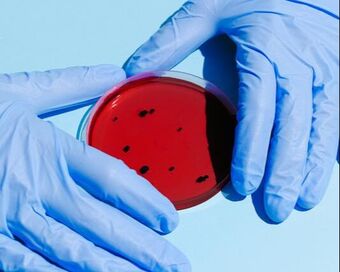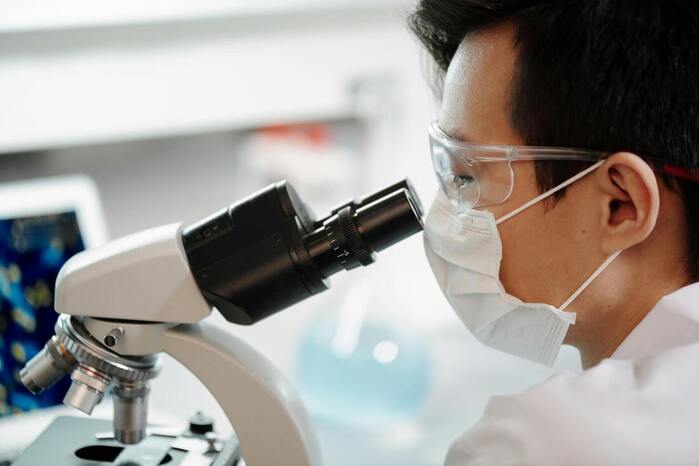Cancer? Have Some E. Coli
In an era where the quest for a cure for cancer remains at the forefront of scientific research, a recent breakthrough offers a glimmer of hope. In early 2023, scientists were able to harness the power of certain bacteria, known for their natural affinity for tumor environments, targeting and destroying cancer cells from within. This innovative approach represents a remarkable shift in oncology, using live bacteria to outmaneuver cancer in a way traditional therapies cannot.
Traditional cancer treatments like chemotherapy and radiation, while effective, often come with a host of side effects, primarily due to their lack of specificity in targeting cancer cells. Enter the world of bioengineered bacterial therapy: a solution that promises to deliver anti-cancer agents directly to the tumor site, minimizing damage to healthy cells and reducing side effects. The study, coming from researchers at the Chonnam National University in Korea, illuminates how these genetically modified bacteria are designed to penetrate deep into the tumor mass, where they can directly kill cancer cells, disrupt the tumor's metabolism, or stimulate the body's natural immune response against the tumor.
Traditional cancer treatments like chemotherapy and radiation, while effective, often come with a host of side effects, primarily due to their lack of specificity in targeting cancer cells. Enter the world of bioengineered bacterial therapy: a solution that promises to deliver anti-cancer agents directly to the tumor site, minimizing damage to healthy cells and reducing side effects. The study, coming from researchers at the Chonnam National University in Korea, illuminates how these genetically modified bacteria are designed to penetrate deep into the tumor mass, where they can directly kill cancer cells, disrupt the tumor's metabolism, or stimulate the body's natural immune response against the tumor.
Image Source: Edward Jenner
The implications of this research are huge. Clinical trials have already begun to showcase this therapy’s potential to treat various cancers, offering a more targeted, efficient, and less toxic alternative to conventional treatments. Moreover, the adaptability of bacteria-based therapy means it could be customized to individual patient needs, ushering in a new age of personalized medicine.
Looking beyond its scientific significance, this therapy aligns seamlessly with the growing demand for treatments that complement a holistic approach to health and happiness. By reducing the adverse effects associated with cancer treatment, patients can maintain a better quality of life during therapy, often mirroring their life pre-cancer.
However, the journey from laboratory to clinic is full of challenges. Researchers are diligently working to ensure the safety and efficacy of this therapy, optimizing bacterial strains to maximize their tumor-fighting capabilities while minimizing potential risks. The balance between therapeutic benefit and safety is a top-priority, with scientists employing cutting-edge genetic engineering techniques to refine these bacterial warriors.
The potential of bacteria-based cancer therapy extends beyond treatment; it offers a marked shift in how we view bacteria and their role in medicine. No longer just agents of disease, these microorganisms are being reimagined as allies in the fight against cancer, capable of delivering hope to those who need it most.
As research progresses, the promise of bacteria as tumor-hunters stands as a testament to the ongoing creativity of science in confronting one of humanity's most persistent opponents: cancer. For patients and families affected by cancer, this emerging therapy represents not just a new treatment option, but a new frontier in the pursuit of health and happiness.
Looking beyond its scientific significance, this therapy aligns seamlessly with the growing demand for treatments that complement a holistic approach to health and happiness. By reducing the adverse effects associated with cancer treatment, patients can maintain a better quality of life during therapy, often mirroring their life pre-cancer.
However, the journey from laboratory to clinic is full of challenges. Researchers are diligently working to ensure the safety and efficacy of this therapy, optimizing bacterial strains to maximize their tumor-fighting capabilities while minimizing potential risks. The balance between therapeutic benefit and safety is a top-priority, with scientists employing cutting-edge genetic engineering techniques to refine these bacterial warriors.
The potential of bacteria-based cancer therapy extends beyond treatment; it offers a marked shift in how we view bacteria and their role in medicine. No longer just agents of disease, these microorganisms are being reimagined as allies in the fight against cancer, capable of delivering hope to those who need it most.
As research progresses, the promise of bacteria as tumor-hunters stands as a testament to the ongoing creativity of science in confronting one of humanity's most persistent opponents: cancer. For patients and families affected by cancer, this emerging therapy represents not just a new treatment option, but a new frontier in the pursuit of health and happiness.
Featured Image Source: Anna Shvets
RELATED ARTICLES
|
Vertical Divider
|
Vertical Divider
|
Vertical Divider
|






